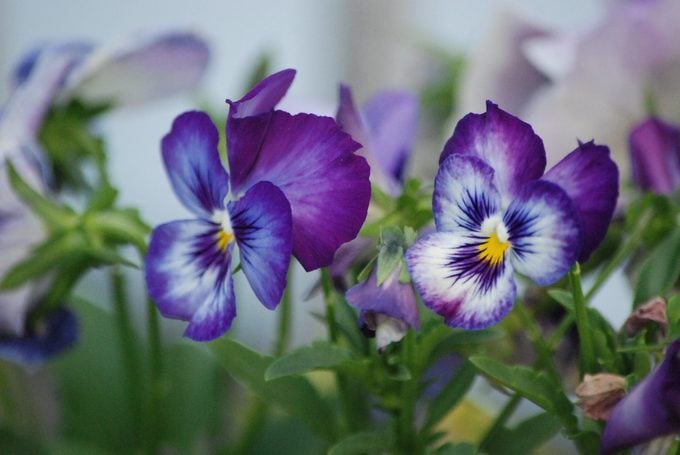Edible Flowers: What Flowers Can You Eat?
Updated: Apr. 18, 2022
Bring color and tasty accents to your garden and table with edible flowers. Here's the answer if you wonder what flowers can you eat safely.

Creative cooks have long known that flowers aren’t just for table decor—they also add vibrant color and flavor to your food. But you may wonder what flowers can you eat safely?
What Flowers Can You Eat?
Pansies, borage and lavender are common suggestions for edible flowers, but you can add to your dishes a variety of common plants, like magnolia, hibiscus and pineapple sage blossoms. Looking for blooms that pollinators can’t resist? Butterflies love these flowers.
You may be surprised by the strong or savory taste of some flowers. Nasturtium can pack a peppery punch, and calendula is a much more affordable alternative to saffron. Holly Shimizu, the former curator of the National Herb Garden in Washington, D.C., says individual florets of chive and dill can be sprinkled over dishes. But she also cautions, “Don’t use the whole flower head. It will be overwhelming.”
Other garden favorites have the sweet flavor you might expect, such as elderflowers or roses. One of Holly’s favorites is Ava agastache, a variety of hyssop. She says the licorice-flavored pink flower tastes like candy. People are shocked at how good it is!
These are the top 10 plants to grow for a mocktail, cocktail or tea garden.
How to Pick Edible Flowers
For the best taste, use strongly fragrant blooms and pick flowers as soon as the morning dew has dried. Here’s a guide to the best times to water plants. The petals should usually be removed from the base, or calyx, which is often bitter. You may also want to remove the pistil and stamen from the flower’s center, particularly if you have pollen allergies. Also keep in mind that not you cannot eat all flowers. Thoroughly research any plant before consuming it to make sure it’s safe to dish up.
Most edible flowers prefer to be grown in full sun. To safely enjoy flowers as food, do not use pesticides or chemicals in your garden. And be aware of what might have been sprayed on them at the nursery. April Shelhon, marketing horticulturist for seed vendor Botanical Interests, says, “Growing edible flowers from seed gives you the control to nurture healthful, chemical-free blooms that nourish you and your pollinator friends—plus it’s more fun!”



















